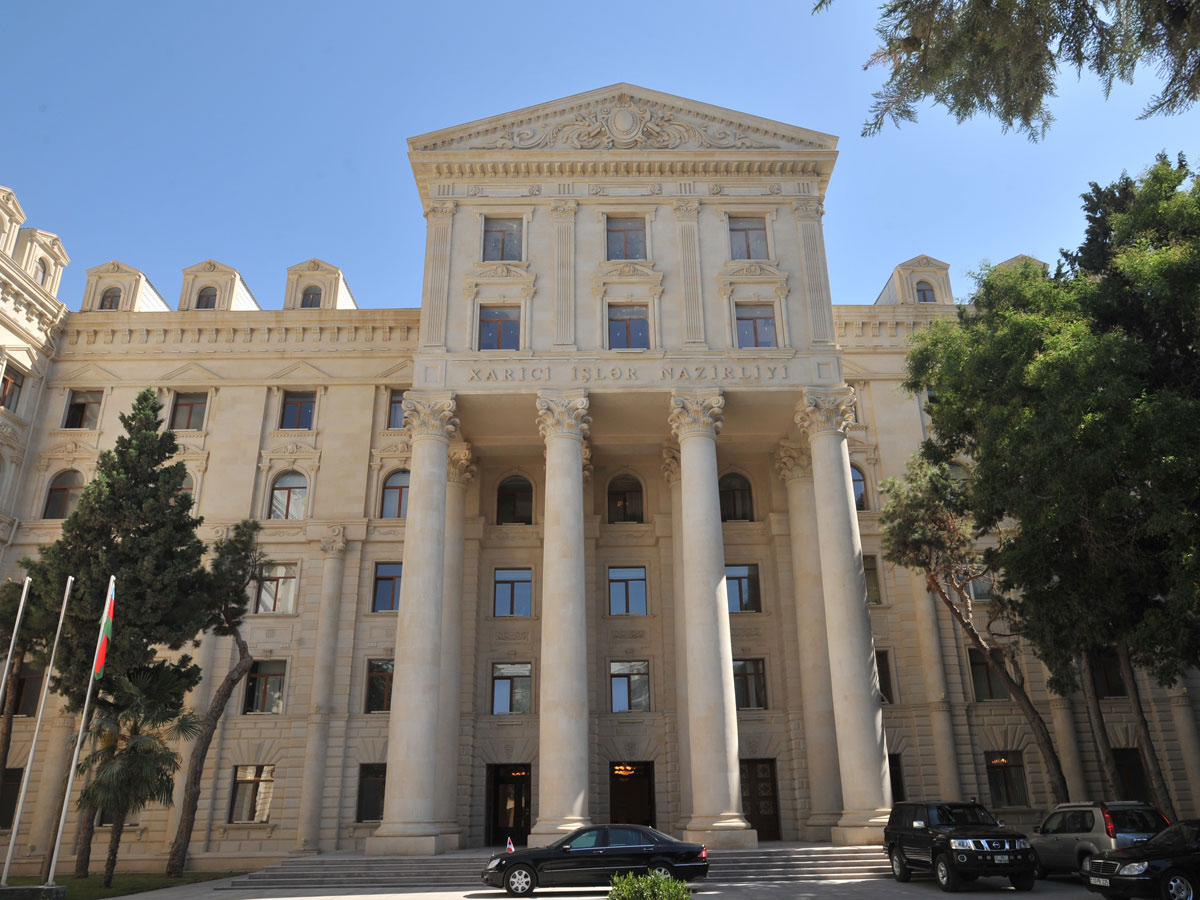Baku, Azerbaijan, June 14
Trend:
Spokesman of Azerbaijan’s Foreign Ministry Hikmet Hajiyev has released a statement in connection with the distribution of a document by the Permanent Mission of Armenia at the UN in May on behalf of the separatist regime created in Azerbaijan’s occupied territories.
The Permanent Mission of Armenia at the UN took similar steps earlier as well, Hajiyev said.
"In this matter, the Permanent Mission of Armenia at the UN chose a way of falsification and deception of the UN member states," he said. "A document on behalf of the separatist regime was attached to the letter of the Permanent Mission of Armenia at the UN."
He noted that the Armenian media make this look like as a document of the separatist regime in the UN. "In fact, this is a lie and nonsense," Hajiyev said.
In connection with this, on June 7, the Permanent Mission of Azerbaijan at the UN sent a letter to the UN General Secretariat, he noted.
On the same day, the chairman of the UN Security Council distributed a letter among the members of the Security Council, and then it was published as an official document, Hajiyev said.
"The letter emphasizes that the Nagorno-Karabakh region is an integral part of Azerbaijan, stresses the inadmissibility of seizing the territory by using force, and demands immediate and unconditional withdrawal of the occupying forces from the occupied territories," he noted. "The letter also says that Armenia constantly evades responsibility by ignoring the position of the international community."
The letter also refers to the legal decision made in 2015 by the European Court of Human Rights on the “Chiragov and Others v. Armenia” case, Hajiyev added.
"Once again, it was stressed that Armenia by its occupation and annexation policy will never achieve its goal, Nagorno-Karabakh is an integral part of Azerbaijan, and Armenia has no other way but to withdraw its troops from the occupied territories of Azerbaijan," Hajiyev said.
The letter also emphasizes that Yerevan must stop attempts to mislead its people and the international community and must fulfill its obligations to resolve the conflict, he added.
"It was noted in the letter that only in this case the long-awaited peace and stability will be established in the region," Hajiyev said.
The conflict between the two South Caucasus countries began in 1988 when Armenia made territorial claims against Azerbaijan. As a result of the ensuing war, in 1992 Armenian armed forces occupied 20 percent of Azerbaijan, including the Nagorno-Karabakh region and seven surrounding districts.
The 1994 ceasefire agreement was followed by peace negotiations. Armenia has not yet implemented four UN Security Council resolutions on withdrawal of its armed forces from the Nagorno-Karabakh and the surrounding districts.






